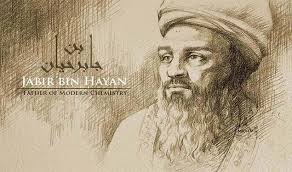Introduction
The historical contributions of Islamic civilization to the development of modern science are profound and far-reaching. During the Golden Age of Islam, which spanned from the 8th to the 14th century, Muslim scholars made significant advancements in various scientific fields, laying the groundwork for many modern scientific principles and discoveries. This article explores the pivotal role Islam played in nurturing scientific inquiry and how its emphasis on knowledge and learning contributed to the birth of modern science.
The Golden Age of Islam
- House of Wisdom (Bayt al-Hikma):
- Established in Baghdad in the 9th century, the House of Wisdom was a major intellectual hub where scholars from different cultures and religions collaborated. It was instrumental in translating and preserving ancient Greek, Persian, and Indian texts, which became the foundation for future scientific endeavors.
- Prominent Scholars and Their Contributions:
- Al-Khwarizmi: Known as the father of algebra, Al-Khwarizmi’s works in mathematics laid the foundation for modern algebra and algorithms.
- Ibn Sina (Avicenna): His encyclopedic work, “The Canon of Medicine,” was a standard reference in both the Islamic world and Europe for centuries.
- Al-Haytham (Alhazen): Often referred to as the father of optics, his book “Kitab al-Manazir” (Book of Optics) revolutionized the understanding of light and vision.
Islamic Principles Encouraging Scientific Inquiry
- The Quran and Hadith:
- The Quran and Hadith emphasize the importance of knowledge and the pursuit of learning. Numerous verses encourage reflection, observation, and understanding of the natural world. For instance, the Quran states, “Say, ‘Are those who know equal to those who do not know?’ Only they will remember [who are] people of understanding.” (Quran 39:9)
- Integration of Religion and Science:
- Unlike the perceived conflict between science and religion in other cultures, Islamic civilization saw no dichotomy between the two. Scientific exploration was considered a means to understand and appreciate the divine creation better.
Contributions to Various Scientific Fields
- Astronomy:
- Muslim astronomers made significant advancements, such as developing astrolabes and refining Ptolemaic models. Observatories like the one in Maragha led to precise astronomical charts and calendars.
- Medicine:
- Islamic scholars excelled in medicine, with hospitals established in major cities. Innovations in surgery, pharmacology, and public health were documented in comprehensive medical texts that influenced later European medicine.
- Mathematics:
- The introduction of Arabic numerals, the development of algebra, and advancements in geometry and trigonometry were significant contributions that shaped modern mathematics.
- Chemistry:
- Known as alchemy, early Islamic chemists like Jabir ibn Hayyan (Geber) developed experimental techniques and discovered numerous chemical substances, laying the groundwork for modern chemistry.
Influence on the European Renaissance
Transmission of Knowledge
- Translation Movement:
- The translation movement, which began in the 12th century, played a crucial role in transmitting Islamic scientific knowledge to Europe. During this period, scholars in places like Toledo, Spain, and Sicily translated Arabic texts into Latin. This movement was pivotal in making the vast body of Islamic knowledge accessible to European scholars.
- Notable translators such as Gerard of Cremona, who translated over 70 Arabic works, and Adelard of Bath, who brought Arabic astronomical and mathematical knowledge to Europe, were instrumental in this process.
- Key Texts and Their Impact:
- Al-Khwarizmi’s Algebra: The translation of Al-Khwarizmi’s works introduced the concepts of algebra to Europe, significantly influencing European mathematics.
- Ibn Sina’s Canon of Medicine: This comprehensive medical encyclopedia was translated into Latin as “Canon Medicinae” and became the standard medical text in European universities for several centuries.
- Al-Haytham’s Book of Optics: His work on optics was translated into Latin and profoundly influenced European scientists such as Roger Bacon and Johannes Kepler.
Intellectual Exchange
- Crusades and Cultural Exchange:
- The Crusades, despite being a period of conflict, also facilitated cultural and intellectual exchange between the Islamic world and Europe. Crusaders brought back knowledge, scientific techniques, and texts from the Islamic world, enriching European intellectual life.
- Universities and Learning Centers:
- The establishment of universities in Europe was inspired by Islamic educational institutions such as madrasas and libraries. European universities adopted the systematic approach to education and research that characterized Islamic institutions.
- The University of Bologna, the University of Paris, and the University of Oxford were among the first European institutions to incorporate Islamic scientific knowledge into their curricula.
Contributions to Various Fields
- Astronomy:
- Islamic astronomical texts, such as the works of Al-Battani and Al-Zarqali, provided European scholars with advanced astronomical models and data. These works influenced notable European astronomers like Nicolaus Copernicus, whose heliocentric model of the solar system was partly based on Islamic astronomical observations.
- Instruments like the astrolabe and the quadrant, refined by Muslim astronomers, were introduced to Europe and became essential tools for navigation and astronomical observation.
- Medicine:
- The comprehensive medical knowledge of Islamic scholars, encapsulated in texts like Ibn Sina’s Canon of Medicine and Al-Razi’s Kitab al-Hawi, laid the foundation for modern medical education in Europe.
- European physicians adopted and expanded upon the surgical techniques, pharmacological knowledge, and clinical practices developed by Muslim scientists, leading to significant advancements in European medicine.
- Mathematics:
- The introduction of Arabic numerals and the concept of zero, along with the algebraic methods of Al-Khwarizmi, revolutionized European mathematics. These innovations facilitated the development of more advanced mathematical theories and practical applications in commerce, engineering, and navigation.
- The works of Islamic mathematicians were foundational for European scholars like Fibonacci, whose book “Liber Abaci” popularized the use of Arabic numerals in Europe.
- Philosophy and Natural Sciences:
- Islamic philosophers like Al-Farabi, Ibn Sina, and Ibn Rushd (Averroes) made significant contributions to metaphysics, ethics, and natural sciences. Their works were translated into Latin and influenced European thinkers such as Thomas Aquinas, Albertus Magnus, and Roger Bacon.
- The rationalist approach of Islamic philosophers, emphasizing empirical observation and logical reasoning, helped shape the scientific method adopted by European scholars during the Renaissance.
Technological and Scientific Methods
Experimental Techniques
- Pioneering Experimental Approaches:
- Islamic scholars were among the first to emphasize the importance of empirical observation and experimentation. This methodological approach was crucial in differentiating scientific inquiry from philosophical speculation.
- Al-Razi (Rhazes), for instance, is known for his clinical observations and systematic classification of diseases, which laid the foundation for modern clinical medicine. He was meticulous in his documentation of symptoms and treatments, advocating for the use of empirical evidence to support medical diagnoses and therapies.
- Alchemy and Chemistry:
- Jabir ibn Hayyan (Geber), often considered the father of chemistry, introduced experimental techniques and methods for conducting chemical reactions. His works detailed the distillation process, crystallization, and various other chemical processes, many of which are still used in modern chemistry.
- Jabir’s emphasis on experimentation and his systematic approach to chemical processes influenced later European alchemists and chemists, contributing significantly to the development of modern chemistry.
- Optics and Physics:
- Al-Haytham (Alhazen) made groundbreaking contributions to the field of optics through his experimental methods. In his “Book of Optics,” he conducted experiments to study the behavior of light, refraction, reflection, and the properties of lenses.
- Al-Haytham’s work laid the groundwork for the later development of optical instruments and theories in Europe, influencing scientists such as Roger Bacon and Johannes Kepler.
Technological Innovations
- Astronomical Instruments:
- Islamic astronomers developed and refined various astronomical instruments, including the astrolabe, armillary sphere, and quadrant. These tools were crucial for precise astronomical observations and navigation.
- The astrolabe, in particular, was used for determining the positions of stars and planets, measuring time, and solving complex astronomical problems. Its design and functionality were further developed by European astronomers during the Renaissance.
- Engineering and Architecture:
- Islamic engineers and architects made significant advancements in building techniques, hydraulics, and mechanical engineering. Innovations such as the use of windmills, watermills, and sophisticated irrigation systems were adopted by European engineers.
- The construction of impressive architectural structures, such as mosques, palaces, and public baths, showcased advanced knowledge of geometry, materials science, and structural engineering. Techniques like the use of muqarnas (ornamental vaulting) and intricate tilework influenced European Gothic architecture.
- Medical Instruments and Techniques:
- Islamic physicians and surgeons developed a wide range of medical instruments, many of which were used for surgical procedures, ophthalmology, and dentistry. Instruments such as scalpels, forceps, and syringes were refined and documented in medical texts.
- Al-Zahrawi (Albucasis), a prominent Islamic surgeon, wrote extensively on surgical techniques and tools in his comprehensive work “Al-Tasrif.” This text was translated into Latin and served as a key reference for European surgeons.
- Hydraulic Engineering:
- Islamic engineers excelled in hydraulic engineering, designing sophisticated water supply systems, aqueducts, and irrigation networks. The qanat system, a network of underground channels, efficiently transported water to arid regions and influenced European water management techniques.
- The construction of large-scale water clocks and mechanical devices for measuring time and regulating water flow showcased the advanced understanding of hydraulics and mechanics in the Islamic world.

Scientific Methods
- Systematic Observation and Documentation:
- Islamic scientists emphasized the importance of systematic observation, meticulous documentation, and reproducibility of experiments. This approach was crucial in establishing a scientific methodology based on empirical evidence.
- Ibn al-Haytham’s (Alhazen) rigorous scientific method, which included forming hypotheses, conducting experiments, and verifying results through observation, prefigured the modern scientific method used by European scientists.
- Mathematics as a Tool for Science:
- Islamic mathematicians made significant contributions to algebra, geometry, and trigonometry, which were essential for advancements in various scientific fields. Al-Khwarizmi’s introduction of algebraic concepts and algorithms provided the mathematical framework for solving complex problems.
- The development of spherical trigonometry by Islamic scholars was crucial for advancements in astronomy and navigation. These mathematical principles were later adopted and further developed by European scientists during the Renaissance.
- Integration of Philosophy and Science:
- Islamic philosophers like Ibn Sina (Avicenna) and Ibn Rushd (Averroes) integrated Greek philosophical concepts with Islamic theology and scientific inquiry. Their works on logic, metaphysics, and natural sciences provided a comprehensive framework for understanding the natural world.
- This integration of philosophy and science influenced European thinkers such as Thomas Aquinas and Albertus Magnus, who sought to reconcile faith with reason and empirical evidence.
Influence on the European Renaissance
- Transmission of Scientific Knowledge:
- The systematic methods and technological innovations of Islamic scientists were transmitted to Europe through translations of Arabic texts into Latin. This transmission of knowledge was facilitated by centers of learning in Toledo, Cordoba, and Sicily, where scholars translated and studied Islamic scientific works.
- The incorporation of Islamic scientific methods and technologies into European education and research institutions played a pivotal role in the intellectual awakening of the European Renaissance.
- Catalyzing the Scientific Revolution:
- The empirical and experimental approach pioneered by Islamic scientists laid the groundwork for the Scientific Revolution in Europe. The emphasis on observation, experimentation, and the use of mathematical models to explain natural phenomena became central to the scientific advancements of the 16th and 17th centuries.
- Pioneering figures of the Scientific Revolution, such as Galileo Galilei, Johannes Kepler, and Isaac Newton, built upon the foundations laid by Islamic scientists, leading to transformative discoveries in astronomy, physics, and mathematics.
Conclusion
The profound influence of Islamic civilization on the European Renaissance cannot be overstated. The translation of Arabic texts into Latin, the intellectual exchange facilitated by the Crusades, and the incorporation of Islamic scientific knowledge into European universities were pivotal in shaping the course of European intellectual and scientific progress. By integrating the rich heritage of Islamic scholarship, Europe was able to embark on a period of unprecedented growth in science, philosophy, and technology, ultimately leading to the modern era of scientific discovery and innovation. Recognizing and appreciating these contributions is essential for a comprehensive understanding of the interconnected history of global knowledge and scientific development.
The Decline and Revival of Islamic Science
- Factors Leading to Decline:
- Political instability, invasions, and internal conflicts contributed to the decline of scientific inquiry in the Islamic world. The shift towards conservative interpretations of religious texts also played a role in stifling intellectual curiosity.
- Modern Revival Efforts:
- Today, there are efforts to revive the Islamic tradition of scientific inquiry through educational reforms and fostering collaboration between Muslim and Western scientists.
Conclusion
Islam’s rich heritage in science and knowledge has left an indelible mark on the development of modern science. The Golden Age of Islam was a period of remarkable intellectual achievement, driven by the Quranic emphasis on knowledge and the harmonious integration of faith and reason. Recognizing and appreciating these contributions is essential for fostering a deeper understanding of the shared scientific heritage that unites humanity.









